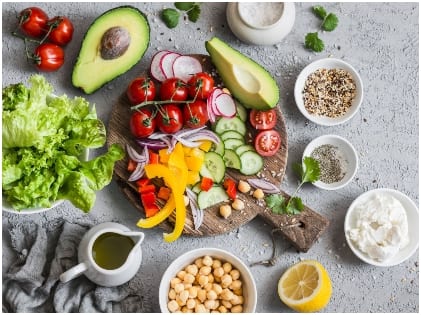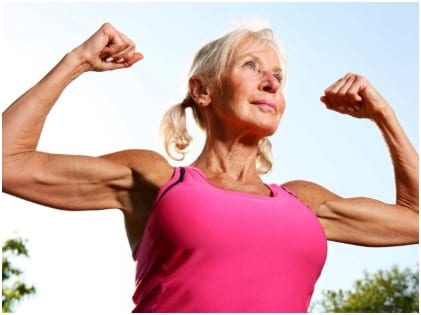 It’s a fact that you tend to gain weight as you age. And sadly, weight loss becomes much difficult then. The reality is that a 30-year-old will no doubt have greater metabolism than a 60-year old. This is similar to a 30-year old being able to exercise for longer than someone older. Women face many issues regarding losing weight, even when they maintain similar dietary patterns and exercising regimen that they followed for a long time.
It’s a fact that you tend to gain weight as you age. And sadly, weight loss becomes much difficult then. The reality is that a 30-year-old will no doubt have greater metabolism than a 60-year old. This is similar to a 30-year old being able to exercise for longer than someone older. Women face many issues regarding losing weight, even when they maintain similar dietary patterns and exercising regimen that they followed for a long time.
Midlife weight crisis affects most women and that’s mostly because of menopause. Not that the same holds for all women. But in general, 40 to 60-year-olds and those post 60 gain on an average 1.5 pounds per year, going by few studies. If you consume lesser calories and introduce some variations in the same old tried techniques, then there are chances you might start noticing positive results. There are more ways to do so. Keep reading to know how to lose weight post-menopause.
Keep Away From Sugar And White Flour
Insulin spikes are common among menopausal women. And both white flour and sugar are the primary causes that tend to increase insulin level, which can pose detrimental for people with diabetes especially. If you want to lose weight after menopause, it’s time to bid farewell to these foods. Or else, you might have to deal with related issues like abdominal fat storage, lethargy, and more.
Keep your diets simple, like lesser carbohydrates as white flour or sugar and foods containing optimal levels of the same. Even alcohol contains high amounts of sugar, which leads to weight gain. If you consult your nutritionist, they might suggest oatmeal, berries, and bagels for breakfast. Excess proteins in the form of junk food like grilled chicken sandwiches cause more harm, so why not replace that with green salad?
Try Resistance Training

When a woman turns 40, the prospects of losing 10-15% of the strength and muscle mass increase manifold. And the trend is likely to persist with each passing decade. Since muscles are the body’s energy reserves, the best thing is to burn the energy (calories), even when they are resting. For those who exercise religiously, try talking to your fitness expert.
He or she might recommend you resistance training against that of the same traditional strength training exercises. Research has also shown that this technique works wonders in reducing abdominal fat. A recent study has also added light to the fact that repeating this process using heavier weights is a result-oriented approach than with lower weights.
Include Fruits And Vegetables In Your Diet Plan

Women who eat more fruits and veggies after their 40s and reduce the intake of beverages and aerated drinks and desserts lose weight faster. Making some dietary changes as we age adds to our benefit. The need for energy calories decreases a great deal by the time a woman hits the 50s.
But the requirement for vitamins, minerals, and essential fibers stay much the same based on the lifestyle. Hence, this calls for choosing only nutrient-rich foods. If this isn’t enough, recent research indicates how a generous dose of fruits and vegetables in one’s daily diet diminishes chances of postmenopausal osteoporosis. So, make sure you get an ample dose of fresh fruits in your everyday diet!
Consume More Proteins

Of course, proteins go a long way in building the muscles, but that’s not all! Experts suggest that including more proteins in our daily diet are many, including keeping hunger pangs at bay. Our muscles and hunger need to be well regulated, which can only occur if protein intake is laid out well in the diet plan. Try aiming for no less than 20 to 30 grams of protein with each meal.
Poultry, meat, and fishes are good choices, but more sources like cheese, yogurt, milk, tofu, soya, etc. There are additional modes of countering the excess weight issues that most women complain of. For example, hormone therapy is often a common choice that most women choose to get, simply because of the benefits. But before you opt for it, try making some necessary modifications at home first. And don’t forget to talk to your physician to get personalized healthcare and dietary tips. That way, you could keep your weight under check even after menopause.
